

1859

The Comstock Lode was discovered under what is now Virginia City, NV. This find was later described as "the richest treasure of silver and gold ever discovered anywhere on earth in so concentrated an area." It yielded more than $300 million in bullion during its initial 20 years of operation. This discovery created a large class of millionaires and multimillionaires, many of whom participated in the development of Nevada's mineral resources over the next two decades.
1861
March 2
Congress created the Nevada Territory. On July 11, territorial governor James Warren Nye established the territorial government.
1864

October 31
Based on authority granted by Congress, President Abraham Lincoln proclaimed Nevada to be the 36th state of the Union.
1865
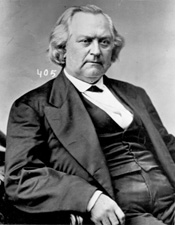
February 1
William M. Stewart of Virginia City and former territorial governor James W. Nye of Carson City took office as Nevada's first two U.S. senators. They drew lots to determine their class assignments. Stewart drew Class 1, with a term to expire March 3, 1869. Nye drew Class 3, with a term to expire March 3, 1867.
1867
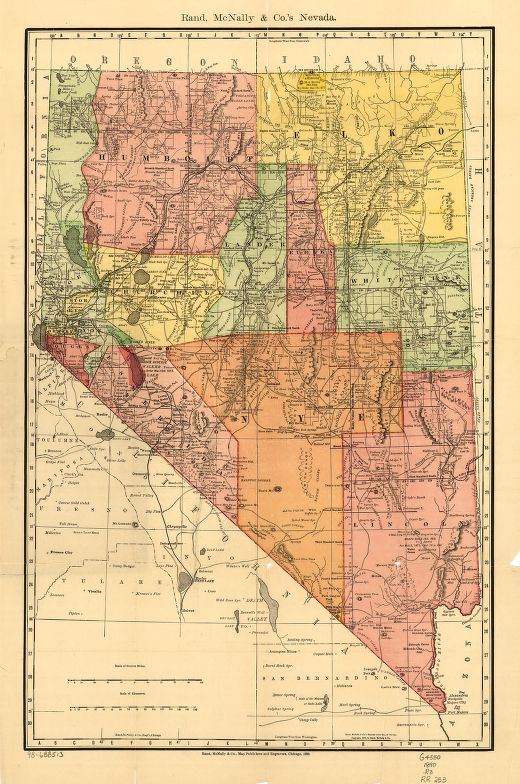
May 5
Nevada assumed its current borders when Congress added lands carved from the Utah and Arizona territories.
1867
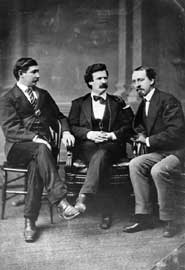
November
Senator William Stewart hired Mark Twain to be his personal secretary. Twain quit within weeks.
1873
January 17
The Senate passed the Coinage Act fixing the nation's currency to the gold standard and eliminating silver as a monetary standard. It was signed into law on February 12, 1873. Nevada senator William Stewart denounced this action, known in western states as the "Crime of '73."
1890
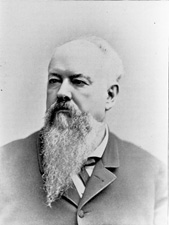
Nevada senators William Stewart and John P. Jones of Gold Hill joined with other western senators, known as the "Bonanza Kings," to successfully block all other legislation in order to secure passage of the Sherman Silver Purchase Act, which established a plan for limited purchase of silver by the federal government. The act was signed on July 14, 1890.
1893
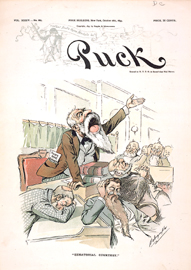
October 30
In spite of a 46-day filibuster by western senators under the leadership of Senators Stewart and Jones, the Senate repealed the Sherman Silver Purchase Act.
1899
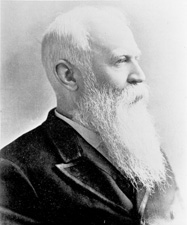
January
Accusations that Senator Stewart's supporters intimidated his political opposition in the Nevada legislature marred his final reelection. This incident increased support in the state for direct election of U.S. senators.
1902
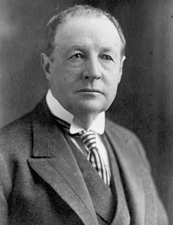
June 17
President Theodore Roosevelt signed the National Reclamation Act, which was principally sponsored by Representative (and later senator) Francis Newlands of Reno. The act established a national policy for desert irrigation.
1903
March 3
Senator John P. Jones ended his 30-year Senate career—the longest service of any Nevada senator.
1908
Beginning in 1908, candidates for Nevada’s state legislature were bound by a ballot measure entitled "Choice for U.S. Senator" which essentially pledged any legislative candidate to elect the senatorial candidate who received the largest number of popular votes, regardless of party affiliations.
1913
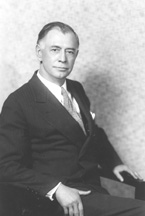
January 28
In a referendum, Key Pittman of Tonopah won election to a Senate seat by 89 votes, the smallest margin in any U.S. Senate race to that time.
1913

March 15
Francis Newlands became chairman of the Committee on Interstate Commerce (today's Committee on Commerce, Science, and Transportation).
1914

November 3
Incumbent senator Francis Newlands became Nevada’s first directly elected senator under the terms of the Seventeenth Amendment. For the first time, women were allowed to vote in Nevada. This came almost six years before ratification of the U.S. Constitution's Nineteenth Amendment, providing that right to all eligible American women.
1921
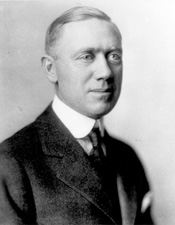
March 4
Bearing a quarter-century-old grudge over a Nevada land deal, a constituent entered the Senate office of retiring Nevada senator Charles Henderson of Elko and shot him in the wrist. Henderson was not seriously wounded and the assailant quickly surrendered.
1933

March 9
Key Pittman became chairman of the Senate Committee on Foreign Relations, serving until his death in 1940.
1933
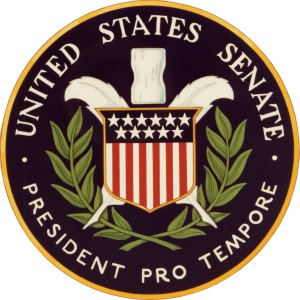
March 9
Key Pittman was elected Senate president pro tempore, a position he held until his death in 1940.
1944
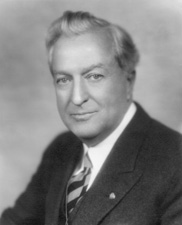
February 4
Patrick A. McCarran of Reno became chairman of the Senate Committee on the Judiciary and served until 1947. He chaired that committee again from 1949 to 1953.
1960

March 23
Nevada dedicated its first entry in the National Statuary Hall Collection, a bronze statue of Senator Patrick A. McCarran. McCarran served on the Nevada supreme court from 1913 to 1918 and in the U.S. Senate from 1933 until his death in 1954.
1964
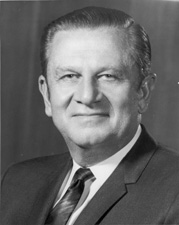
November 3
In the closest Senate election race in U.S. history to that date, incumbent Democrat Howard W. Cannon of Las Vegas defeated Republican lieutenant governor Paul Laxalt by 48 votes. A recount gave the election to Cannon by a margin of 84 votes, the narrowest margin ever. Laxalt later won election to the Senate in 1974.
1973
January
Howard Cannon became chairman of the Senate Committee on Rules and Administration, serving until 1978, when he became chairman of the Committee on Commerce, Science, and Transportation. He chaired that committee until 1981, when the Democrats lost control of the Senate.
1984
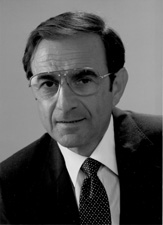
September 28
Senator Chic Hecht of Las Vegas won the Golden Gavel Award for presiding over the Senate for 100 hours in a single session. He won a second Golden Gavel on September 9, 1986.
1990

October 12
Senator Richard Bryan of Las Vegas won the Golden Gavel Award for presiding over the Senate for 100 hours in a single session.
1998
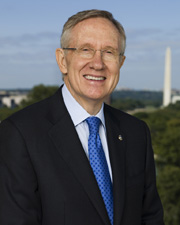
December 2
Senate Democrats elected Harry Reid of Searchlight to be their assistant leader (Democratic whip). Reid had been serving as the Democratic Policy Committee co-chair since 1995.
2001
June 6
Harry Reid became chairman of the Senate Select Committee on Ethics after Senator James Jeffords of Vermont left the Republican Party and started caucusing with the Democrats, giving the Democrats a one-vote majority. Senator Reid served as chairman until 2003.
2004
November 16
Senate Democrats elected Harry Reid to be their floor leader and conference chairman. In 2007, when Democrats took control of the Senate, he became Senate majority leader.
2005

March 10
The state dedicated its second entry in the U.S. Capitol's National Statuary Hall Collection, bronze statue of Sarah Winnemucca (1841-1891), a member of the Paiute tribe, educator, defender of human rights, and author of the first book by a Native American woman (Life Among the Piutes: Their Wrongs and Claims, 1883).


